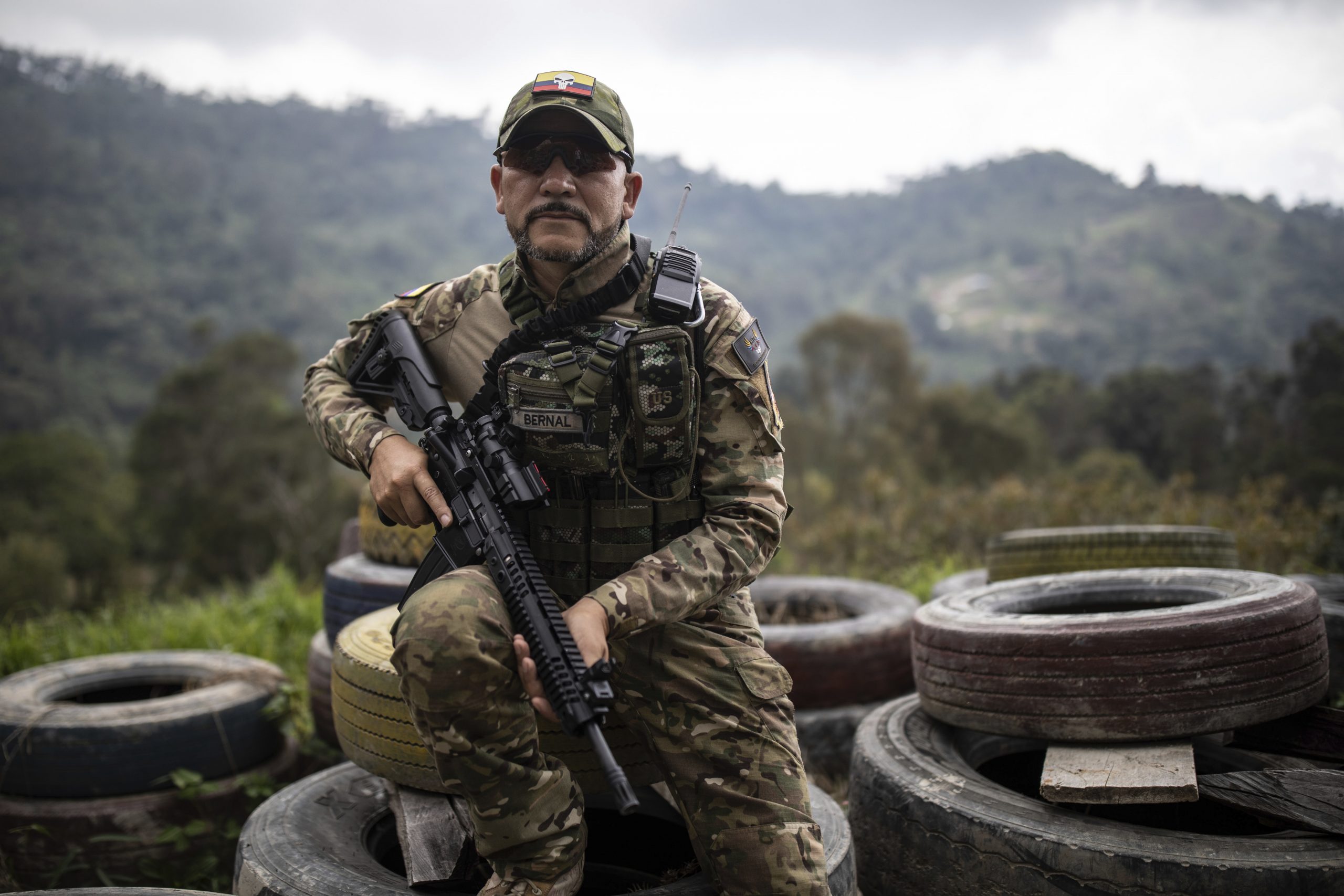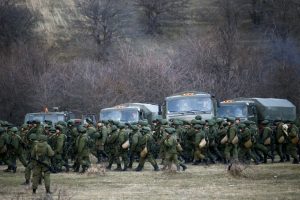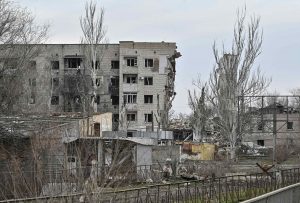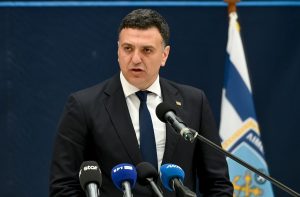Soldiers-of-fortune are back in force—manning Ukraine’s front lines, filling Gulf monarchies’ barracks and fighting Africa’s civil wars. Colombia, racked by decades of conflict, is a top source of hired guns .
Jhonny Pinilla had battled guerrillas in his country’s jungles for a decade. But the frenzied, close-quarter combat that he experienced there seemed like a vacation compared with his panicked escapes from Russian artillery fire after he volunteered to join the Ukrainian army.
“I had no idea if I was going to live or die,” recalled the 40-year-old.
Add to that not just a foreign language but a strange alphabet, and subzero temperatures replacing his accustomed tropical heat. Yet Pinilla sees no alternative to a life of combat. “War is the only trade I know,” he said while resting in another country.
Fighters such as Pinilla are part of a burgeoning market for veterans from poorer countries chasing a paycheck. These days, it is truly combat pay. Most war dogs cut their teeth in low-intensity or sporadic fights, such as chasing drug runners and human traffickers.
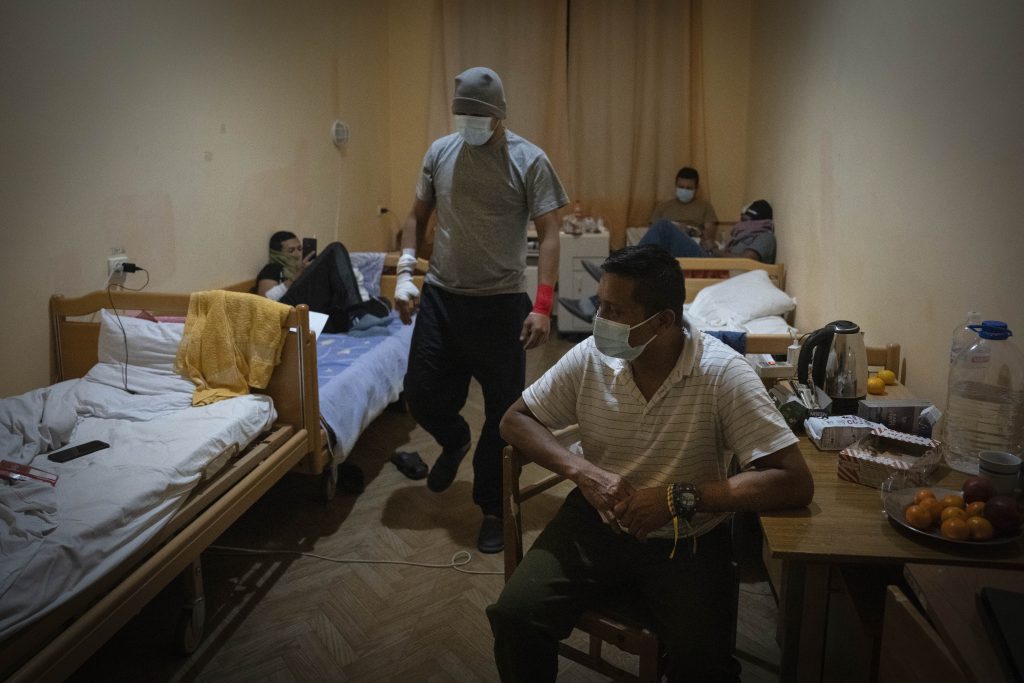
Wounded Colombian veterans who joined Ukrainian armed forces to help the country fight Russia receive treatment in a hospital in Ukraine, Wednesday, Dec. 20, 2023. After two years of war, Ukraine is looking for ways to replenish its depleted ranks and the Colombian professional soldiers are a welcome addition. (AP Photo/Efrem Lukatsky)
Battles in Ukraine, the Middle East and Africa, in contrast, now rage with lethality not seen for decades. Colombian fighters hired last year by intermediaries in the United Arab Emirates have died fighting for rebel forces against the Sudanese government.
Yet the danger hasn’t stopped them from signing up. On Ukraine’s front lines, the flow of veterans from far-flung conflicts has helped sustain the war. The arrival of foreign volunteers has also turned trenches into a babel of foreign tongues. Ukraine says 20,000 international soldiers have joined its ranks. They come from the nearby Caucasus and as far afield as the Indian subcontinent, East Asia and South America.
Recruits include Argentines once deployed in Haiti, Brazilians who fought narco-traffickers, and Algerians and Kenyans who battled al Qaeda in Africa, according to interviews and social-media profiles. In Pinilla’s own formation, a veteran of the Taiwanese army, which faces threat of invasion by China, died in October 2022, according to the government in Taipei.
Some mercenaries are adrenaline junkies. Others are driven by a hint of idealism. Pinilla said he and many comrades want to support “the country that really needs help” against Russia. If mercenaries were just after money, he said, “they would go to Mexico” and join drug cartels.
Thousands of volunteers flocked to Ukraine in the early days of the war, including U.S. and European veterans, to fight for democracy or the thrill of battle, but the number of Westerners has dwindled as the war has become a slog .
Most soldiers of fortune are different from Russian private military company Wagner , the soldiers North Korea recently sent to fight for Russia against Ukraine and U.S. contractor Blackwater, founded by mercenary tycoon Erik Prince . Those forces act to varying degrees as extensions of their governments’ foreign policies and are deployed to serve national interests.
Moscow has also enlisted tens of thousands of freelance foreign soldiers to fight Ukraine. Among them are Yemenis recruited by pro-Iranian Houthi rebels, Nepalese soldiers who once fought Maoist guerrillas at home and Cubans lured by the promise of Russian passports and high pay.
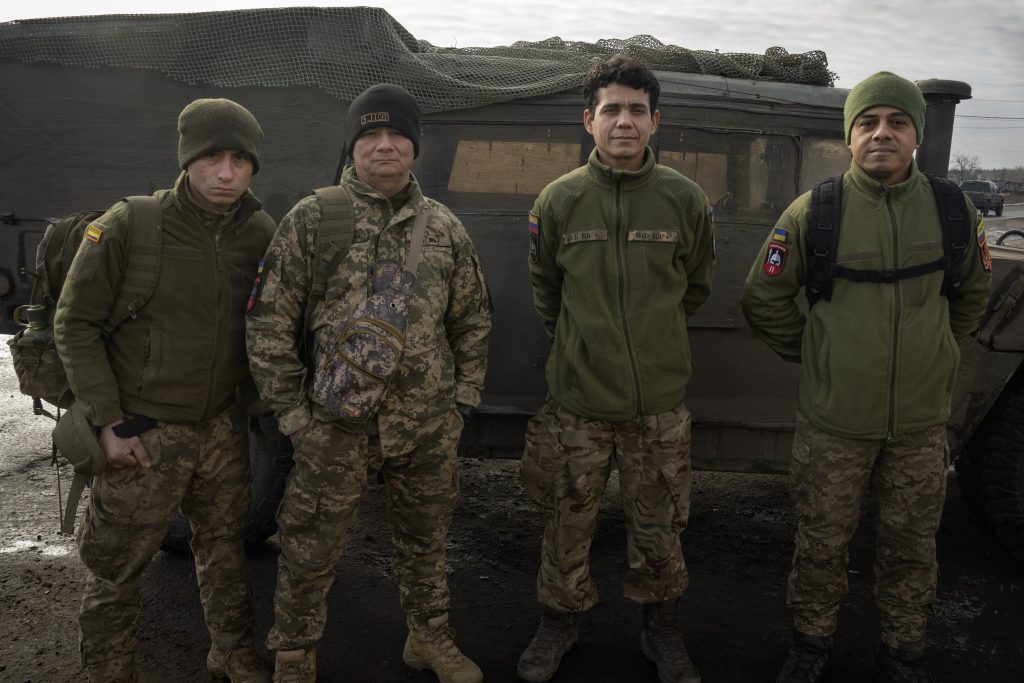
Colombian veterans who joined the Ukrainian armed forces to help fight Russia pose for a photo near their Humvee on the front line near Lyman, Donetsk region, Ukraine, Monday, Jan. 29, 2024. After two years of war, Ukraine is looking for ways to replenish its depleted ranks. The Colombian professional soldiers are a welcome addition. (AP Photo/Efrem Lukatsky)
Soldiers of fortune were common across Europe from the fall of the Roman Empire to the rise of the modern nation-state around the 1600s.
Itinerant fighters’ ranks shrank in the modern era and were largely replaced by conscripts and career soldiers. But they never disappeared. Some fought for ideology in the Spanish Civil War. Most were ex-soldiers seeking a paycheck during the Cold War. WatchGuard International, among the first private military companies, was formed by British special forces veterans in 1965. Now, proliferating conflicts have stoked demand for hired guns.
Colombia, with a hefty stock of veterans from decades of drug wars , has become a gold mine for mercenary recruiters. Mounting deaths of its citizens abroad and messy diplomatic entanglements have become so problematic for leftist President Gustavo Petro that his government is working on a law to ban Colombians from mercenary work.
For many, it is just a job—though one with dangers on and off the battlefield. Colombian veteran José Aron Medina enlisted in Ukraine to pay for his parents to leave their farm in a violent part of the country, said his sister. Last summer, Medina and a comrade, with whom Pinilla had trained, flew home via Venezuela. Authorities in the Russia-friendly country grabbed them as they changed planes and sent them to Russia, where they now sit in jail. The Kremlin has posted videos of them complaining of mistreatment by Ukrainians, ruing their work there and urging others not to make their mistake.
Pinilla for 12 years fought in Colombia’s jungles against Marxist insurgents. In 2014, he retired from the army and tried to join other Colombians applying for a new mercenary posting. After passing a first cut, he spent three months training before some men in the group bribed a doctor to pass a medical exam. The recruiter found out and rejected them all, Pinilla said. For almost a decade, he scraped by as a security escort for wealthy businessmen.
Pinilla, undaunted by his stumble, kept looking for overseas work. Scrolling through a WhatsApp group of Colombian veterans in mid-2023 he spotted a job offer: Ukraine’s army was recruiting experienced fighters at $3,300 a month when in combat deployment, compared with $500 for a Colombian officer. He decided to go.
The first hurdle was leaving Colombia. The government has monitored veterans’ departures since at least 20 of them were implicated in the assassination of Haiti’s president in 2021. It also opposes recruitment of fighters for Ukraine. To fly out of Bogotá, “we just told the authorities we were going as tourists to Poland,” Pinilla said.
In case of questions on landing in Madrid, Pinilla carried an official Ukrainian letter stating his enlistment. From Spain he flew to Warsaw, took a train to Poland’s eastern border and walked into Ukraine. “They checked my passport, and then I went to war,” he said.
Ukraine put Pinilla in command of a 30-man reconnaissance unit and assigned them a translator, though a lot of communication is done through smartphone translation apps, he said. The Colombians were soon sent for training on military essentials such as first-aid, in a sunflower field about 40 miles from the front. Suddenly, it was the battlefield.
A drone buzzing overhead distracted Pinilla. He assumed it was Ukrainian. It was Russian and began dropping grenades about 60 feet from the group. Then came an artillery barrage.
“You could really feel the explosive waves, the earth trembling, the houses shaking,” he said. “I had never experienced that in my life.”
The Colombian fighters ran away, feeling defenseless on the open field. “We didn’t have anything, not even a bulletproof vest,” just a notebook and a pencil case, Pinilla recalled. In his panicked race for cover, he spotted Ukrainian farmers nearby, plowing the land as if nothing were happening. “The saddest part is that there are people in Ukraine who got used to living like this,” he said.
Weeks later, Pinilla and his men were stationed in an abandoned school in a town whose name he can’t recall. “They’re all weird names,” he said. One day, he heard a deafening blast. The windows imploded in a spray of glass. A Russian airstrike, he assumed.
“We were surprised to be alive,” he recalled thinking when quiet returned. He later learned that a Ukrainian jet fighter had been trying to shoot down a big Russian drone.
Pinilla’s unit was sent near enemy lines to observe their positions and direct artillery fire. Although he’s in a reconnaissance unit, combat and the prospect of death always loomed near the front. “It was so intense you couldn’t stay posted in the same locations for more than two days,” he said.
One day a Ukrainian commander told Pinilla that intercepted Russian communications indicated his unit might find itself battling other Colombians, and asked what he would do. Pinilla said his men would fight them because anyone siding with Russia is the enemy, “whether he is from our country or not.”
Reality was more complex. One young Colombian in Pinilla’s unit soon after witnessed two Colombians on Russia’s side jump into a Ukrainian trench and kill two Peruvians with grenades. “He couldn’t do anything. He had to hide,” Pinilla said of his compatriot. Within a month, he was gone, telling comrades he couldn’t stomach Colombians killing Peruvians, Pinilla said.
Other jobs are rarely better, even if they appear so. A Colombian recruiter working for a U.A.E. client last summer listed drone-operator positions paying up to $6,000 a month, working for a Libyan warlord backed by Russia. Colombians who took the job only transited through Libya to Sudan, where some were killed in November as they shipped weapons for a faction in the country’s civil war.
They joined a growing list. Colombia’s Foreign Ministry has received requests to bring home the bodies of 186 soldiers slain in Ukraine, giving it among the highest death tolls for foreign fighters in the war. Another 122 are deemed missing in combat, according to the ministry.
Pinilla knows he, too, may die on the job. “I believe in God. For me, that’s not the end of it,” the devout Catholic said of death. If he survives and Ukraine reaches a peace deal, Pinilla sees other opportunities. “I will try to go and fight in Israel,” he said.
Write to Benoit Faucon at benoit.faucon@wsj.com and Kejal Vyas at kejal.vyas@wsj.com
